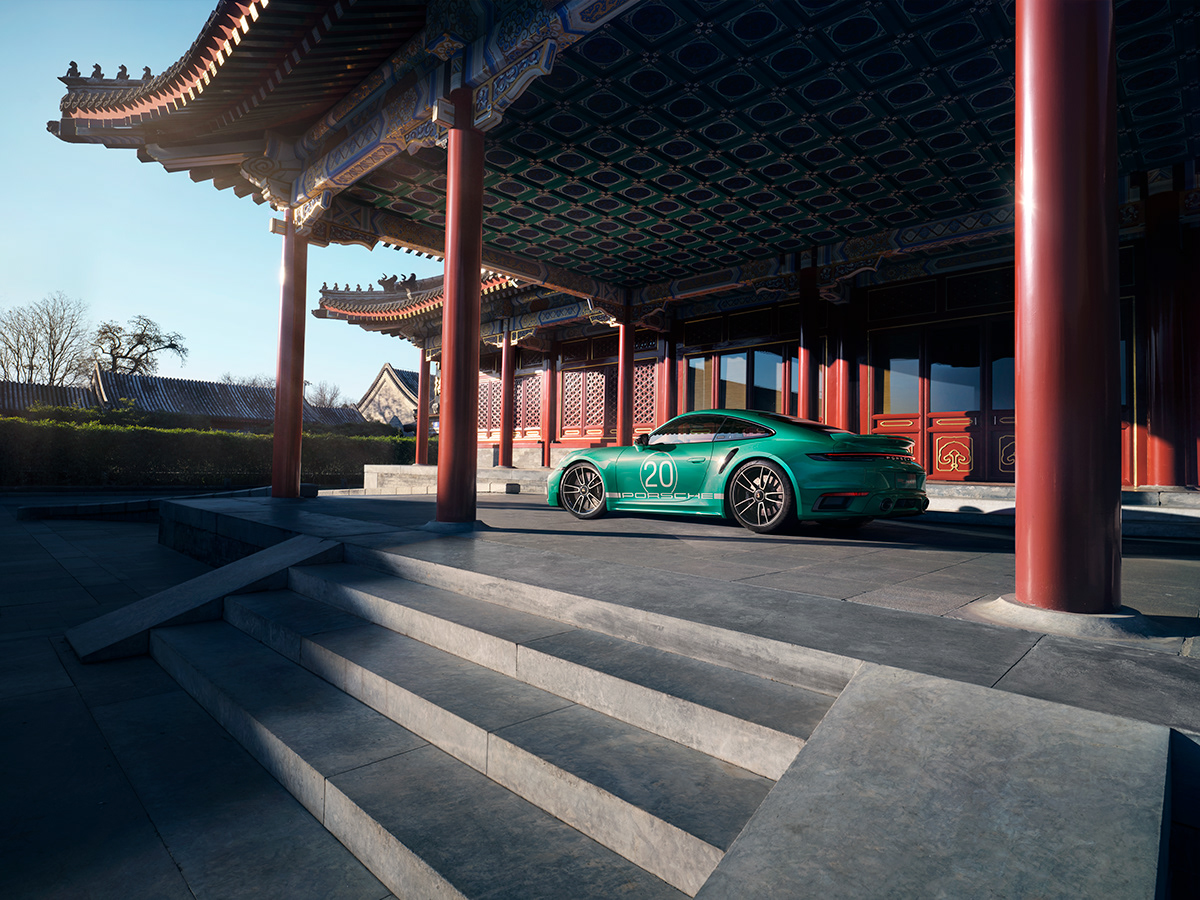BMW, Porsche, And The Shifting Sands Of The Chinese Auto Industry

Table of Contents
The Rise of Chinese Domestic Automakers
The Chinese auto industry is no longer dominated solely by foreign brands. Domestic automakers are rapidly gaining market share, forcing established players like BMW and Porsche to adapt their strategies.
Increased Competition from Local Brands
Chinese brands, such as BYD, NIO, and Xpeng, are making significant strides, particularly in the electric vehicle (EV) sector. Their success is fueled by several factors:
- Competitive Pricing: Chinese EVs often offer comparable features at lower price points than their foreign counterparts.
- Technological Advancements: Companies like BYD are pioneering battery technology and autonomous driving features, challenging the technological dominance of established brands.
- Successful Models: The BYD Han, NIO ET7, and Xpeng P7 are examples of highly competitive EVs that are gaining popularity among Chinese consumers.
These advancements are directly impacting the luxury market share previously held by international brands like BMW and Porsche.
Shifting Consumer Preferences
Consumer preferences in China are undergoing a dramatic shift. There's a growing preference for:
- Electric Vehicles (EVs): Driven by government incentives and environmental awareness, EV adoption rates in China are among the highest globally.
- Technological Features: Chinese consumers increasingly prioritize advanced features such as autonomous driving capabilities, advanced driver-assistance systems (ADAS), and sophisticated infotainment systems.
- Domestic Brands: A surge in national pride and confidence in homegrown technology is leading to increased brand loyalty towards domestic automakers. This shift necessitates a re-evaluation of brand loyalty strategies for international brands.
BMW and Porsche's Strategies in China
To maintain their competitive edge, BMW and Porsche are employing various strategies to adapt to the changing dynamics of the Chinese auto industry.
BMW's Approach
BMW's strategy in China focuses on:
- Localization: BMW is actively adapting its models to cater to the specific preferences of the Chinese market, offering localized features and design elements. This includes partnerships with local suppliers and investment in local manufacturing facilities.
- Electric Vehicle Rollout: BMW is aggressively expanding its EV offerings in China, investing heavily in charging infrastructure and promoting its electric models through targeted marketing campaigns.
- Partnerships: Collaborating with Chinese tech companies allows BMW to leverage local expertise and integrate cutting-edge technology into their vehicles.
Porsche's Approach
Porsche, while maintaining its focus on luxury, is also adapting to the Chinese market by:
- SUV Focus: The popularity of SUVs in China has led Porsche to concentrate on expanding its SUV lineup, leveraging its strong brand recognition in this segment.
- Digital Marketing: Porsche employs sophisticated digital marketing campaigns tailored to Chinese consumers' online behavior, reaching them through popular social media platforms and online channels.
- Brand Building: Porsche’s strategy emphasizes reinforcing its luxury positioning through exclusive events, brand experiences, and a strong emphasis on craftsmanship and heritage.
Challenges and Opportunities in the Chinese Auto Market
Despite the significant opportunities, BMW and Porsche face several challenges in the Chinese automotive market.
Navigating Government Regulations
China's government plays a significant role in shaping the automotive industry through:
- Emission Standards: Stringent emission regulations are driving the shift towards electric vehicles and pushing automakers to invest in cleaner technologies.
- Safety Regulations: China’s increasing focus on safety standards necessitates higher investments in vehicle safety features and rigorous testing procedures.
- Foreign Investment Policies: Government policies regarding foreign investment and ownership structures can impact strategic decisions for international brands.
Supply Chain Disruptions and Economic Fluctuations
The Chinese auto market is not immune to global challenges:
- Supply Chain Disruptions: Global supply chain issues can impact the availability of parts and components, affecting production and sales.
- Economic Uncertainty: Economic fluctuations and potential slowdowns can affect consumer spending and demand for luxury vehicles. Effective risk management strategies are crucial for navigating these uncertainties.
Conclusion: BMW, Porsche, and the Future of the Chinese Auto Industry
The Chinese auto industry is undergoing a period of unprecedented transformation. BMW and Porsche's success in this dynamic market hinges on their ability to adapt to evolving consumer preferences, navigate government regulations, and overcome supply chain disruptions. Their strategies, combining localization efforts, EV investments, and targeted marketing campaigns, are crucial for maintaining market share. However, the relentless rise of domestic brands and the rapid pace of technological advancements pose ongoing challenges. Learn more about the dynamic shifts in the Chinese auto industry and explore the future of BMW and Porsche in this ever-evolving market.

Featured Posts
-
 Chuyen Tinh Dep Cua Lynk Lee Va Ban Trai Sau Khi Chuyen Gioi
May 10, 2025
Chuyen Tinh Dep Cua Lynk Lee Va Ban Trai Sau Khi Chuyen Gioi
May 10, 2025 -
 Serious Data Breach Nottingham Attack Victim Records Accessed By 90 Nhs Staff
May 10, 2025
Serious Data Breach Nottingham Attack Victim Records Accessed By 90 Nhs Staff
May 10, 2025 -
 Can Nigel Farages Reform Party Deliver A Realistic Assessment
May 10, 2025
Can Nigel Farages Reform Party Deliver A Realistic Assessment
May 10, 2025 -
 Elizabeth City Police Investigate String Of Car Break Ins At Apartment Complexes
May 10, 2025
Elizabeth City Police Investigate String Of Car Break Ins At Apartment Complexes
May 10, 2025 -
 Conseil Metropolitain De Dijon La 3e Ligne De Tram Concertation Adoptee
May 10, 2025
Conseil Metropolitain De Dijon La 3e Ligne De Tram Concertation Adoptee
May 10, 2025
